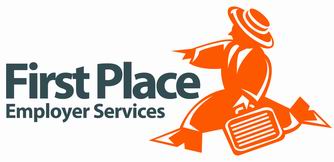This post is a bit off center for our blog, but we found it quite interesting and thought it may help, might provoke a bit of conversation, and provide an overall view of how to make everything fine in 2009! Please take note at the bottom of the post for a few fantastic suggestions for alternative rewards.
It’s that time of the year again – time to set 2009 salary budgets. For the past 8 years the answer has been an easy one, 3.5%. Each year the surveys predicted that salary budget adjustments would remain flat and ahead of the Consumer Price Index.
That was, of course, until the latter half of 2008. With fluctuating energy prices and their domino effect on most goods and services, we may be facing the first year in which the salary budget adjustment will fall short of the consumer price index inflation rate. In the July 2008 consumer price index report from the Bureau of Labor Statistics (http://www.bls.gov/), the consumer price index had increased by 5.6% over July 2007 levels. Currently 2008 salary budgets (http://www.worldatwork.org/) are averaging 3.7%, which is higher than 2007 levels.
There is good news as we move into 2009, however. According to the Financial Forecast Center (http://www.forecasts.org/), a financial think-tank group, inflation rates will come under control in 2009, returning to approximately 3.6% per year.
While there are numerous salary budgeting forecasts published this time of year, Astron Solutions closely follows two highly regarded sources. The first is WorldatWork (http://www.worldatwork.org/). The second is Mercer, LLC (http://www.imercer.com/). Both have been providing salary budgeting forecasts for over 30 years.
The WorldatWork 2009 Salary Budget Survey contains data from 2,375 organizations representing 21 different industry segments. In terms of 2009 salary budgeting, WorldatWork reports the following:
2009 General Increase Budgets: 2.9%
2009 Merit Increase Budgets: 3.6%
2009 Total Increase Budgets: 3.9%
From an organizational level perspective WorldatWork discovered the following:
2009 Non Exempt Hourly Adjustments: 3.8%
2009 Exempt Salaried Adjustments: 3.9%
2009 Officer and Executives Adjustments: 4.1%
The report shows very little distinction by region of the country (range of 3.8% - 4.0%), metropolitan area (range of 3.7% to 4.1%), or key industry segment (range of 3.8% to 4.2%).
WorldatWork projects overall 2009 salary range adjustments at 2.5%.
The 2009 Salary Planning Report by Mercer has data from over 1,000 organizations representing over 12 million employees. Mercer reports an overall 2009 salary budget level of 3.7%, with 2009 budgeted structure adjustments at 2.8%.
Of more interest is Mercer’s analysis of compensation practice trends for 2009. The following is a list of compensation practices and their prevalence in the survey sample:
• Traditional Pay Grade/Salary Range System: 77%
• Use of Non-Monetary Reward Programs: 73%
• Job Families Linked to Formal Career Paths: 68%
• Use of Spot Cash Awards: 59%
• Use of Individual Non-Management Incentive Programs: 52%
• Use of Competency Based Performance Management System: 41%
• Use of Broad-Banded Pay Ranges: 21%
• Use of Skill-Based Pay Programs: 14%
• Use of Competency-Based Pay Programs: 13%
• Use of Gainsharing Plans: 12%
Those interested in a summary of all the 2009 salary budget forecasts should connect with Lake Associates Inc. (http://www.lakebiz.com/) of Albany, NY. They have compiled an excellent summary of all the major consulting firm forecasts for 2009. Based on their review, Lake Associates recommends the following for 2009:
• Salary Structure Adjustment: 2.9%
• Merit Increase Budget: 3.8%
• Total Salary Budget Adjustment: 3.9%
“Pay increases alone won’t work as a strategic attraction and retention tool,” notes National Director Jennifer Loftus. “With a 3.8% merit increase budget, there’s often little room to recognize top performers. Couple those increases with the escalating cost of living, and the importance of using a total rewards perspective becomes all the clearer.”
Consider alternative rewards, including telecommuting, compressed workweeks, and gas cards, as key elements in your total rewards toolkit to ensure your top talent stays with your organization through these possibly challenging economic times.
To learn more about this author, visit Jennifer Loftus's Website.
Thursday, December 4, 2008
2009 Salary Planning Forecast
Posted by
First Place Employer Services
at
7:10 PM
![]()
![]()
Subscribe to:
Post Comments (Atom)



No comments:
Post a Comment